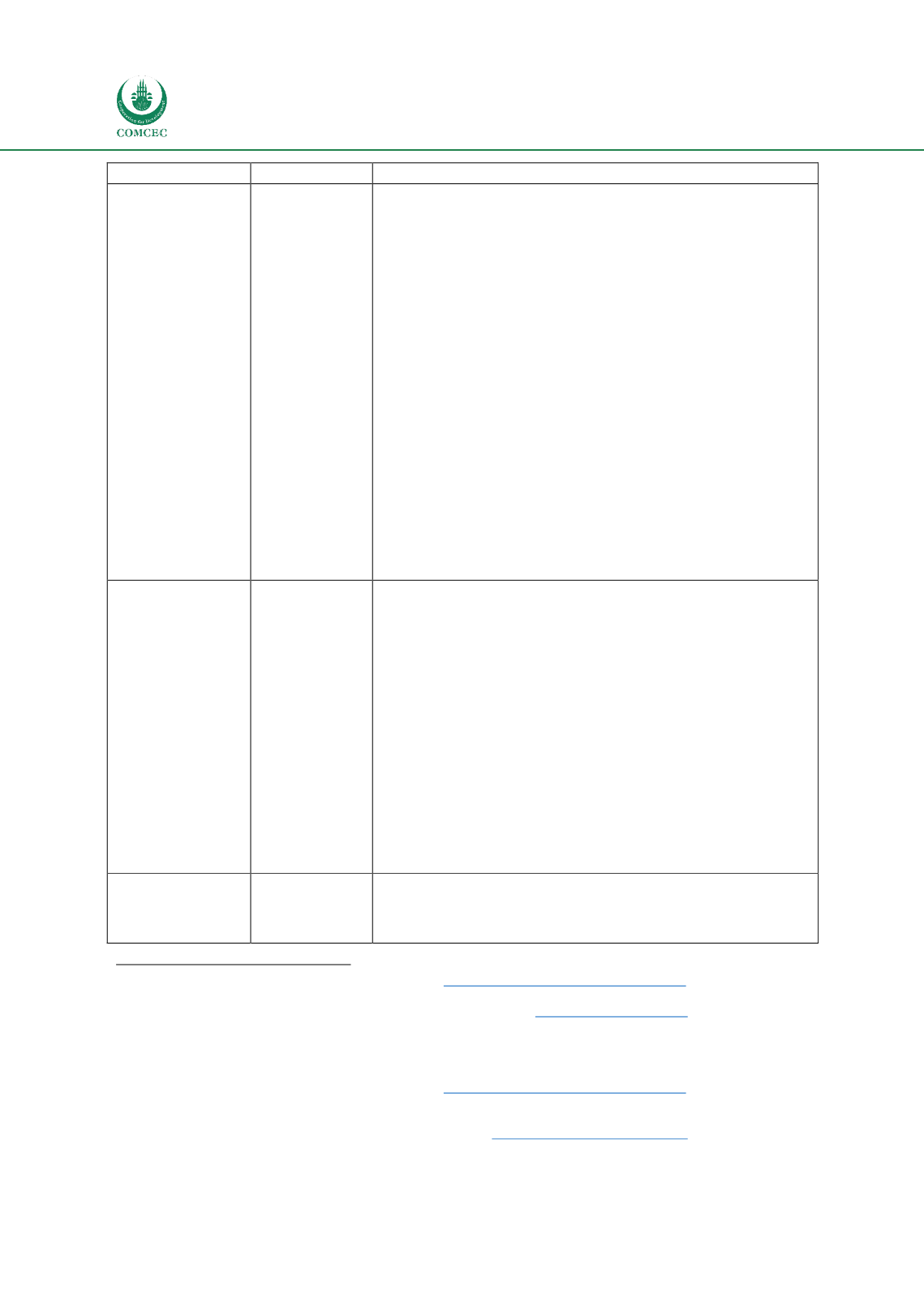

Improving Agricultural Market Performance
:
Creation and Development of Market Institutions
122
Classification
Institution
Description
Marketing Board
Uganda Coffee
Development
Authority
The Uganda Coffee Development Authority (UCDA) is a semi-
autonomous Government entity, which is supervised by MAAIF,
290
established in 1991.
291
Supervising and promoting Uganda’s coffee
industry through supporting research, quality assurance
management and regulation (e.g. licensing of coffee roasters and
exporters, provision of quality certification, and authorization of
seeds), extension (e.g. roasting and brewing practices), collecting,
analyzing, and timely disseminating coffee market data (e.g.
publishing indicative prices in daily market reports), and market
access improvement are among UCDA’s key mandates.
292
However,
the UCDA does not set reference prices and market and
transportation are typical private-sector led.
293
The UCDA promotes coffee production (both national and at tree-
level) through the provision of clean planting materials (i.e.
seedlings, clones, and tissue culture).
294
The UCDA also has a
regulatory role as all coffee processors and exporters must be
registered with the UCDA. The UCDA should, in turn, authorize these
processors and exporters. The UCDA, in addition to exports, also
promotes domestic coffee consumption. A tax levied at 1% of the
export value is directly collected by the UCDA and serves as fund for
its activities. The sector is particularly exposed to volatile world
market coffee prices, which, in combination with pests and diseases,
have discouraged sustainable agricultural practices and investment.
Marketing Board
Cotton
Development
Organisation
The Cotton Development Organisation (CDO) is a semi-autonomous
body reporting to MAAIF.
295
Monitoring Uganda’s cotton
production, processing, distribution, market, and exports (90% as
raw lint
296
) as well as promoting high quality cotton seed through
training and certification are CDO’s key responsibilities. CDO has
been established in 1994.
297
The CDO is not setting reference prices
but announces indicative prices (e.g. for export, ginnery-buying, and
at farm-gate) at the start of each season. Exporters have to be
authorized by the CDO and need to pay an export tax. Uganda’s
cotton sector is, similar to the coffee sector, exposed to volatile
world market cotton prices, particularly due to low domestic lint
consumption. However, a form of price support exists for the cotton
sector through the Government and Ginner’s Support Production
Programme, which provides price support for spray pumps and
pesticides. The CDO provides cotton planting seed and other cotton-
related inputs. Market and transport are private-sector led and no
Government intervention exists in these channels.
Commodity
Market Regulation
Authority
National
Forestry
Authority
The National Forestry Authority (NFA) is, together with the Forestry
Sector Support Department and the Uganda Wildlife Authority,
responsible for Uganda’s forestry sector. Their efforts are
complemented by the private sector (e.g. tree plantations and wood-
290
Government of Uganda (2017), Agriculture, available a
t http://www.gou.go.ug/content/agriculture [Accessed May
2017].
291
Uganda Coffee Development Authority (2017), About UCDA, available a
t http://ugandacoffee.go.ug/ [Accessed May
2017].
292
Interview conducted with Uganda Coffee Development Authority in Kampala, June 8, 2017
293
WTO (2012),
Trade Policy Review: East African Community
, Geneva: World Trade Organization: Geneva.
294
Interview conducted with Uganda Coffee Development Authority in Kampala, June 8, 2017
295
Government of Uganda (2017), Agriculture, available a
t http://www.gou.go.ug/content/agriculture [Accessed May
2017].
296
WTO (2012),
Trade Policy Review: East African Community
, Geneva: World Trade Organization: Geneva.
297
Cotton Development Organisation (2015), About Us, available a
t http://www.cdouga.org/about-us/ [Accessed May
2017].


















